HE finances, a tidal wave of regulatory consultations and information from the OfS, and the Minister responds to student questions. Wishing all our readers a lovely break and a happy new year!
Latest government COVID news and guidance
Of course we will have an update from Jim if there is local news that we need to know. The latest guidance from the government on Christmas rules, from Wednesday, is here.
You will recall that despite the focus on infection rates, the original tiers were set on the basis of 5 tests:
- case detection rate (in all age groups and, in particular, among the over 60s)
- how quickly case rates are rising or falling
- positivity in the general population
- pressure on the NHS – including current and projected (3 to 4 weeks out) NHS capacity – including admissions, general/acute/ICU bed occupancy, staff absences
- local context and exceptional circumstances such as a local but contained outbreak.
What next for 2021
We have updated our horizon scan as there has been a rush of OfS regulatory announcements and consultations and also quite a lot of other news over the last 6 weeks or so. We don’t recommend reading it when you are meant to be relaxing but you might want to bookmark it for your return.
There may well be more next week as the OfS seem to be clearing their desks before the end of the year – but it is already clear that 2021 is going to be an important year in terms of tougher rules and interventions from the OfS drive by the government agenda.
Meanwhile, the government have announced that the budget will be on 3rd March. Is that the date we will hear about the response to Augar and plans for the TEF?
And of course Brexit. Who knows what is going to happen there. MPs are starting their Christmas recess on Thursday – but they are likely to be recalled if a deal is achieved (from PoliticsHome).
The Institute for Government published a blog on the time needed to ratify a deal:
- The UK government is planning to fast-track a new bill through parliament to ratify the deal. If the alternative was no deal on 1 January, it is unlikely either the Commons or the Lords would stand in the government’s way.
- But this is likely to mean MPs and peers approving a deal which they have hardly had a chance to look at, and in doing so would risk storing up problem. When the government introduced the controversial clauses relating to implementation of the Northern Ireland protocol in the UK Internal Market Bill, it claimed these were necessary to address new concerns about what it had signed up to in the Withdrawal Agreement last year. Although this may have been disingenuous, the debate in the Commons suggested many MPs really didn’t know what they had agreed to in January when they rushed through the Withdrawal Agreement Bill.
- …The process is more complicated on the EU side. First there would need to be a decision about who actually needs to be involved in ratification. Will the deal be a “mixed” agreement on which national parliaments have a vote, or can the process be limited to the Council and the European Parliament? And even if only the Council and European Parliament need to vote, there will be little time for the usual processes of consultations by member state governments with their own national parliaments and debates in the European Parliament.
- Whether or not the deal is a mixed agreement, the Council does have the power to provisionally apply many aspects of it, including those dealing with tariffs. Legally speaking, it could even do so without the European Parliament voting on the deal until a later date. But this by-passing of MEPs could worsen tensions between the Council and the European Parliament at a time when member states need MEPs’ votes on a number of key issues. Michel Barnier has suggested that there may be a period of ‘no deal’ in January while the European Parliament considers a deal, but this would be deeply damaging for traders. However, it would be a mistake to assume MEPs will definitely acquiesce.
Constituencies review
The Parliamentary Constituencies Act has become law meaning the 650 individual constituencies across the UK will be redefined to have a more equal number of voters in each. The Government’s press release states: The updated constituencies will reflect significant changes in demographics, house building and migration – the current ones having been defined using outdated data from two decades ago.
Previously a 2018 review recommended reducing the number of MPs to 600; it was expected to have a big impact on our local constituencies (amongst other things, Mid-Dorset and North Poole was going to be radically changed and the separate constituency of Christchurch was expected to disappear). Instead a new review of the constituencies will commence in 2021, based on the number of registered voters at 1 December 2020.
Reviews of UK parliamentary constituencies are undertaken by four judge-led and independent bodies – the Boundary Commissions for England, Wales, Scotland and Northern Ireland. This review will have to be completed by the Boundary Commissions by 1 July 2023. The Government have also committed to ensuring reviews take place every eight years and the subsequent proposals are implemented automatically. This will stop any potential for political interference or further delays to updating constituencies, protecting fair representation of the British people for the future. There will be three periods of consultation on the proposed new electoral maps. The updated constituencies will reflect significant changes in demographics, house building and migration – the current ones having been defined using outdated data from two decades ago.
It is fair to say that the last process was very delayed and very political, so in theory these look like positive changes, but local issues will still make this very controversial in practice when changes happen.
OfS Christmas Bonus
It seems it’s not just us trying to clear the decks before Christmas. Happy Christmas HE, there’s nothing quite like a bit of regulatory shenanigans to look forward to in the New Year!
The Office for Students have issued three new consultations on reportable events, information sharing, and a new take on the previously paused monetary penalties consultations.
At the time of publishing this week’s policy update The Office for Students has not yet released the updated National Student Survey results. You can look out for updates on this here and on Twitter.
They’ve also issued two sets of new guidance on regulatory monitoring and intervention and on third party notifications (i.e. what counts as a notification for regulatory reasons). Finally there is a student guide for students to report on the progress their university or college has made in delivering its 2019-20 access and participation plan. The OfS press release is here: Regulator sets out how students can register concerns. Wonkhe have a blog on it all here.
On 16th the OfS published lots of data on access and continuation by ethnicity, provider tariff group and subject group. The report is only 10 pages and worth reading. Their press release says:
The report finds that, between 2013-14 and 2018-19:
- There was an increase in the proportion of black, Asian and minority ethnic students entering higher tariff universities (those with higher entrance requirements). This is consistent with data from the Department for Education, which shows that these students have higher rates of entry to higher education than white students.
- There was a higher proportion of Asian, white and mixed ethnicity students at higher tariff universities compared with other providers, but only 5.3 per cent of entrants to these universities were black, compared with 12.0 per cent at other providers.
- Whatever their ethnicity, students at higher tariff universities were the most likely to continue with their studies. In 2017-18, the continuation rate for white students at higher tariff providers was 96.1 per cent, 7.0 percentage points higher than for white students at other providers (89.1 per cent). For other groups, this difference was even larger:
- 3 percentage points for black entrants (94.3 per cent per cent at higher tariff compared with 83.0 per cent at other providers)
- 7 percentage points for mixed ethnicity entrants (95.8 per cent at higher tariff providers compared with 86.1 per cent at other providers)
- 3 percentage points for students of other ethnicity (94.1 per cent at higher tariff providers compared with 85.8 per cent at other providers)
- 2 percentage points for Asian entrants (95.7 per cent at higher tariff providers compared with 87.5 per cent at other providers).
- Black entrants to non-higher tariff providers had the lowest continuation rates of any ethnic group in 2017-18 (83.0 per cent).
- In non-STEM (Science, Technology, Engineering and Mathematics) subjects across all providers, white students had the highest continuation rates (91.3 per cent in 2017-18), while Asian students were most likely to continue in STEM subjects (90.8 per cent).
- For both STEM and non-STEM entrants across all providers, in every academic year from 2013-14 to 2017-18, black students were least likely to continue into a second year of study.
HE Financial Health
The OfS have also published Higher Education financial sustainability – an update. It reports strong cash balances, increased but sustainable borrowing including through government-backed loans, and the fall in income from international students’ fees being less than feared, have combined to leave the sector in a reasonably stable financial position. Yet it recognises significant variation in the position of different providers across the sector.
- The sector is expecting to report broadly similar levels of income of £35 billion across all three years, albeit with an expected decline in 2020/21 to below the levels achieved in 2018-19
- Total HE course fees were reported at £18.5 billion in 2019/20, an increase of 7.2% compared with 2018-19 (£17.2 billion)
- HE providers have forecast that fee income will fall by 1.7% in 2020/21, although this would still be above 2018/19 levels
- Total Non-EU (overseas) tuition fee income was reported at £6bn in 2019/20, an increase of 16.4% compared with 2018/19 (£5.2 billion)
- HE providers anticipate this to decrease by 10.4% in 2020/21 to £5.4bn, but this would also still be above 2018/19 levels
- At the end of 2019/20, sector borrowing was £13.7bn (38.4% of income), a rise of £0.7bn compared to 2018/19
- Forecasts show that the sector is projecting borrowing to continue to rise to £14.2bn by the end of 2020/21 (40.6% of income) – this is a slower increase in borrowing than in previous years
The analysis concludes that although there is currently a low chance of a significant number of unplanned closures of universities, colleges or other providers, there remain considerable uncertainties in the future.
Wonkhe: As the numbers start to come in we offer silent thanks that some of the worst-case scenarios about institutional collapse and sector-wide carnage have not come to pass. New analysis from the Office for Students offers the sector a decent bill of health, and throws light on the many adaptations and measures adopted by providers since the start of the pandemic…against many expectations, the quality of the sector shone through; recruitment largely held up, planning was proportionate, and mitigations were well managed. In such a complex and chaotic environment, not every call the sector or providers made was right, but a lot of them were. On aggregate – HE is in a good place.
It’s good news, but, as we allude above, not for everyone – this Wonkhe blog speaks of the HE providers which are under closer monitoring due to a more precarious financial position, concluding: those providers under close monitoring will remain a worry – there’s a lot of variables but it seems as if structural weaknesses remain. This next year will be less tolerant of these than any other time in recent history.
Commenting on the OfS report, Nicola Dandridge, Chief Executive OfS, said:
- There are many reasons for this relatively positive picture. Universities entered the pandemic in reasonably robust shape. England continues to be a popular destination for international students. And universities have been able to access significant support from the government, including via access to government-backed loans. All of this means that English higher education finds itself in reasonable financial shape, and the grave predictions of dozens of university closures have not materialised.
- There are a number of uncertainties which will continue to affect finances both now and into the future, not least the fact that it is still not clear what the overall impact of the pandemic will be. Where universities have immediate concerns about their finances, they must let us know straight away. The OfS will work constructively with any university in financial difficulties, with our overarching priority being to protect the interests of students. At this point in time, though, we believe that the likelihood of significant numbers of universities or other higher education providers failing is low.
Assessments – Additional Considerations
The Office of the Independent Adjudicator (OIA) has published a new section within the Good Practice Framework: Requests for additional consideration. It sets out some good practice guidance on requests for additional consideration (i.e. “mitigating”, “extenuating” or “special circumstances” procedures, or “factors affecting performance”). OIA state that a quarter of recent complaints relate to the handling of students’ requests for additional consideration when ill health or personal circumstances affected their exam/assessed performance.
The new guidance will apply from the 2021/22 academic year, however, providers are encouraged to consider the relevance it has to learning during Covid times. Providers are urged to consider flexibility and adaptations that they can implement in their approach (particularly evidence requests) for students requesting additional consideration now due to the pandemic.
Felicity Mitchell, Independent Adjudicator OIA, said: Students who need to submit a request for additional consideration may be experiencing significant difficulties and distress. It’s important that the process for considering such requests is fair and proportionate, and that students have a proper opportunity to show that they can reach the necessary academic standards.
Ofqual – online assessments
Ofqual have published the report of their review into the barriers to online and on-screen assessment for high stakes qualifications such as GSCEs and A Levels. IT provision, security and staffing issues are some of the barriers to the adoption of online and on-screen assessments in England. The review was, in part, a response to suggestions from some stakeholders that these assessment methods could be used to mitigate risks around disruption to summer 2021 exams. Dods have summarised the key points here.
Research
R&D Places Strategy: The transcript from the Science Minister’s speech on the Government’s ambition for research and innovation, and progress on developing the R&D Places Strategy is now available here.
Horizon Europe: Research Professional report: legislators have said financial contributions from non-European Union countries participating in Horizon Europe through association agreements will be channelled preferentially to the parts of the programme they won funding from, while EU negotiators have agreed a deal on Erasmus+, the bloc’s 2021-27 education and training mobility programme, which they say could broaden and even triple participation in it.
UKRI Ethnicity Data: Wonkhe report: UK Research and Innovation has published ethnicity data for all funding applicants and awardees, highlighting disparities between different ethnic groups. While the proportion of ethnic minority fellowship awardees has risen from 12 to 18 per cent between 2014-15 and 2018-19, large gaps still exist between ethnic groups, with fewer than one per cent of fellows being black. In addition, the proportion of ethnic minority principal investigators is still lower than the general proportion of ethnic minorities in teaching or research roles. The data is aggregated for UKRI’s seven research councils and is presented both by specific ethnicity and by broader ethnic group.
State of the Relationship: The National Centre for Universities and Business (NCUB) published their State of the Relationship report, which outlines the results of their Collaboration Progress Monitor, examining and tracking university-business collaboration over time. The analysis uses 2017/18 data, compared to a five-year average.
Headline findings for Research and Innovation:
- 85,218 interactions between universities and SMEs – a growth of 11.9% from the previous year
- Almost 13,000 interactions between universities and businesses, increasing by 10.2% on the previous year
- 27,645 interactions with large businesses – a growth of 5.5%
- Investment by UK businesses in university R&D grew by 8.7%, taking total investment to £389m
- 881 Innovate UK academic grants were awarded to universities – an increase of 41 and the highest number since the monitor began
- Increase of 7.4% in foreign funds into HE, but growth is decelerating
- £144m income from licencing, representing an increase of 39%
- 44 spinout companies were still active for at least three years – an increase of 4.8%
- Licences granted by universities decreased by 16.9% down to 7,075 – the first drop in six years
- 1,770 patents were granted to UK universities, representing an increase of 27.7%
Headline findings for Skills and Talent collaboration:
- Learner days delivered by universities to businesses was 1,313 days lower in 2017/18 than the five-year average of 25,027 days
- 72 universities offered higher of degree apprenticeships in 2017/18, whereas five years prior this number was only four
- 6,360 degree apprenticeships started, with 10,497 people participating in a higher of degree apprenticeship provided by a university
- 7,605 HE leavers ran their own business in 2017/18
- 69% of undergraduates and 78% of postgraduates were in full-time or part-time employment
- Just over one quarter of undergraduates had enrolled on a sandwich course – an increase of 3.5% on 2014/15
- 69% of undergraduates agreed or strongly agreed that they were using what they learnt during their studies
- 80% of postgraduates agreed of strongly agreed that they were using what they learnt during their studies
Translational Research: UKRI and Zinc have launched a new programme researchers turn ideas into products and services that help people live longer, healthier lives. The programme is designed to support early career and other researchers with their applications for funding and will open with a series of workshops in January 2021. Researchers will be offered a nine-month package of support provided by Zinc including coaching and mentoring from an active network of experts and partner organisations and assistance in using design-led, impact-focused approaches to developing their ideas. It aims to help researchers with the most innovative ideas, who normally wouldn’t consider this kind of grant, to apply for up to £62,500 per project
Parliamentary Questions & Blogs
- The £15 billion for R&D – will it replace EU funds?
- Wonkhe have a new blog – Knowledge exchange and the arts: Evelyn Wilson introduces a new centre focused on capturing and recording the many benefits of knowledge exchanges between universities and the cultural sector.
- Research Professional have a good blog from ex-Universities Minister Chris Skidmore which argues that postgraduate research policy needs attention and recalls why he abandoned postgraduate study. Excerpts:
Salaries over study
As to the value of a PhD and a career as a researcher, we champion its international appeal and encourage visa applications to improve access to global talent, rightly seeking to bring researchers to this country to establish themselves in our brilliant universities. Yet when it comes to domestic students, we create algorithms called LEO that deliver the harsh message that UK students should not think about any subject that might have a long-term and uncertain outcome—that risk factor we praise start-ups for encouraging—so why not chase a salary instead? It’s a message that makes postgraduate study a no-no.
If we want to become a global science superpower, we need to value research—all of it
Qualification reform
What would different look like? In an increasingly fast-paced economy and society, the idea of taking three to four years out of your life to research and write an 80,000-word thesis that 10 people might read seems a waste of a huge amount of potential and productivity. The Viva, too, belongs to an age that we might politely admit has passed.
Much has already been done to expand the potential crossover between academia and industry, but the greatest barrier of qualification reform for postgraduate study remains. The question is, who in Whitehall understands this? It is an essential prerequisite for an R&D strategy that the level 8 qualification route is expanded and opened up
UCAS
UCAS have published their 2020 End of Cycle Report focusing on widening access and participation and student choice (data dashboard here). What happened to the COVID cohort? Lessons for levelling up in 2021 and beyond is the easy summary read of the end of cycle data.
Research Professional do a great job at interpreting the meaning behind the main points. Their (short) blog is well worth a read if this topic interests you.
Overall UCAS report progress on widening participation, although it remains slow meaning it would take 332 years to close the gap on the current trajectory. Highly selective universities were urged to admit 70 more disadvantaged students per year to close their admissions gap by 2030.
The recommendations are on page 4 and divide into short term 2021 recommendations, and medium-longer term 2022-2025. Here are just a few of interest:
Short Term
- Maintain the uplift in capacity in HE places and improved support for employers to take on apprentices or offer T Level placements
- Adopt UCAS’ MEM as the default mechanism for measuring participation, providing a true sense of progress
- Promote sharing of information at the application stage, including that related to disability, learning difference and mental health, by building confidence in students to trust that UCAS and universities and colleges will use this information to arrange appropriate support and inform future improvements
Medium to long-term, 2022-25
- Increase the number of HE places and apprenticeships to reflect the growing 18 year old population and ensure disadvantaged students do not miss out as a result of increased competition
- Consider how a post-qualification admissions system might improve the application experience and outcomes for disadvantaged students. HE admissions reform should be used as an opportunity to explore how technical education and apprenticeships could be integrated into the UCAS application process
- Explore the benefits of a UK shared apprenticeships admissions service to enable students to consider and connect to all post-secondary education options in a single location
Further insight into the 2020 cohort including the analysis of students’ choices and motivations is due to be published end January 2021.
Chris Millward, Director for Fair Access and Participation at OfS, said:
- Through the access and participation plans they have agreed with the Office for Students, universities have committed to ambitious targets to improve access over the next five years. This UCAS data shows universities taking the first steps towards meeting these commitments… It is crucial that universities follow through on these commitments to reduce barriers for students from the most disadvantaged parts of the country, and we will closely monitor their progress.
- Access is, though, only one part of the picture. It’s promising that a record number of applicants have been accepted from the most underrepresented groups, but these students also need good support once they get into university. That will be crucial for ensuring that they are able to continue with their studies, particularly through the disruption of the coronavirus pandemic, and have an equal opportunity to achieve the top grades. It will also equip them with the skills and knowledge they will need if they are to thrive in the industries and public services of the future.
Access & Participation
Ethnic Disparities: Wonkhe tell us: A letter from the Commission on Race and Ethnic Disparities to equalities minister Kemi Badenoch seeking an extension to a reporting deadline highlights an approach to identifying disparities based on finer grained data. One section suggests that analysis has shown that white “working class” boys are the group least likely to go to university, and that many girls from a Bangladeshi background choose not to go to a university outside of London for family and cultural reasons.
Parliamentary Questions
Student Hardship funding: Following the announcement of £20 million to HE providers to contribute to student hardship for 2020-21 the DfE has begun distributing and monitoring the fund. Wonkhe: Michelle Donelan asks that funding split between full-time, part-time, and disabled student premiums is available to students as quickly as possible, and allocated by the end of the financial year. OfS will publish details of an allocation later this week.
During the APPG for students it was raised that £20m for hardship is approximately £13 per student. Minister Michelle Donelan Reiterates that this fund is not going to be accessed or required by every student, and it is there to support students who need support most.
International
Employment & Skills
The Lords Economic Affairs Committee published Employment and Covid-19: time for a new deal it includes:
- Expand the number of social care workers by increasing funding in the sector with stipulations that funding should be used to raise wages and improve training and conditions;
- Prioritise green projects that can be delivered at scale, quickly, and take place across the country
- Government should introduce a new job, skills and training guarantee, available to every young person not in full-time education or employment for one year
- The Government’s disparate skills and training policies, spread across many departments, should be joined up and be managed and coordinated at a regional local level
- The Government should also consider incentives to help young people move towards jobs with opportunities to develop skills in digital and other growing sectors
- The most significant barrier to hiring apprentices is cost – faced with falling numbers of apprenticeship starts and reduced recruitment, the Government should consider raising the level of hiring subsidies for apprentices
- The DWP should include a greater emphasis on skills profiling in its employment support offer – it should examine successful examples of employment services in other countries, such as Sweden and Austria, which intervene early to support declining businesses and sectors and quickly transition and retrain workers into more viable employment
2020 Spending Review Priorities
Following the Chancellor’s 2020 Spending Review announcements the Treasury has published the provisional priority outcomes and metric document. We have a summary of the aspects related to education here.
APPG for Students
The All Party Parliamentary Group for Students met this week questioning Universities Minister Michelle Donelan on HE student issues. As an interest based parliamentary group the meetings aren’t recorded and transcribed like other parliamentary business. However, the APPG has done a fantastic job in capturing the Minister’s statements on their Twitter feed (you have to keep clicking ‘show replies’ to view the full range of topics the Minister responded to.
Most of Donelan’s responses are the standard Government HE policy stock, however a few stood out.
PQs
Inquiries and Consultations
Click here to view the updated inquiries and consultation tracker. Email us on policy@bournemouth.ac.uk if you’d like to contribute to any of the current consultations.
There are three new consultations from the Office for Students this week:
- Monetary penalties
- Reportable events
- Publication of information about individual providers
Other News
Nursing: Care Minister Helen Whately has made an announcement on the record numbers of students accepted places to study nursing and midwifery in England this year based on the UCAS data released this week. The press release begins:
The final figures from this year’s admission cycle show there were 29,740 acceptances to nursing and midwifery courses in England, 6,110 more than last year and an increase of over a quarter (26%). This year, 23% (6,770) of acceptances were from students aged 35 years and older, a 43% increase on last year.
Net zero: The Government published the Energy white paper: Powering our net zero future this week.
Government Education Policy Commitments: In the traditional spirit of the end of year review Dods have published Boris Johnson: One Year On reviewing how the Government have fared in delivering their cornerstone policy commitments. There’s a short section on Education and Skills on page 9 which is worth a quick skim. The key reminder in relation to HE is: The promised assessment of student loan interest rates has yet to materialise – though some in Whitehall might argue that it’s a low priority on the list of problems facing the HE sector at the moment.
Subscribe!
To subscribe to the weekly policy update simply email policy@bournemouth.ac.uk. A BU email address is required to subscribe.
External readers: Thank you to our external readers who enjoy our policy updates. Not all our content is accessible to external readers, but you can continue to read our updates which omit the restricted content on the policy pages of the BU Research Blog – here’s the link.
Did you know? You can catch up on previous versions of the policy update on BU’s intranet pages here. Some links require access to a BU account- BU staff not able to click through to an external link should contact eresourceshelp@bournemouth.ac.uk for further assistance.
JANE FORSTER | SARAH CARTER
VC’s Policy Advisor Policy & Public Affairs Officer
Follow: @PolicyBU on Twitter | policy@bournemouth.ac.uk
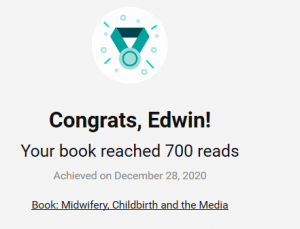 Lee Wright, Senior Lecturer in the School of Nursing and Midwifery at Birmingham City University wrote in his review of our edited volume: “…our media image and digital foot print are rapidly becoming the most important window into our profession. In a rapidly changing environment this book provides an up to date and informative insight into how our profession is affected by the media and how our profession can inform and influence the image of midwifery. This area is going to become even more important in the future universities and trusts increasingly use broadcast and social media to manage information and inform our clients of the services we provide. This book will be the important first text in a new growth area. It brings together an internationally recognised group of authors who are experts in this field. I wholeheartedly recommend it to you.”
Lee Wright, Senior Lecturer in the School of Nursing and Midwifery at Birmingham City University wrote in his review of our edited volume: “…our media image and digital foot print are rapidly becoming the most important window into our profession. In a rapidly changing environment this book provides an up to date and informative insight into how our profession is affected by the media and how our profession can inform and influence the image of midwifery. This area is going to become even more important in the future universities and trusts increasingly use broadcast and social media to manage information and inform our clients of the services we provide. This book will be the important first text in a new growth area. It brings together an internationally recognised group of authors who are experts in this field. I wholeheartedly recommend it to you.”
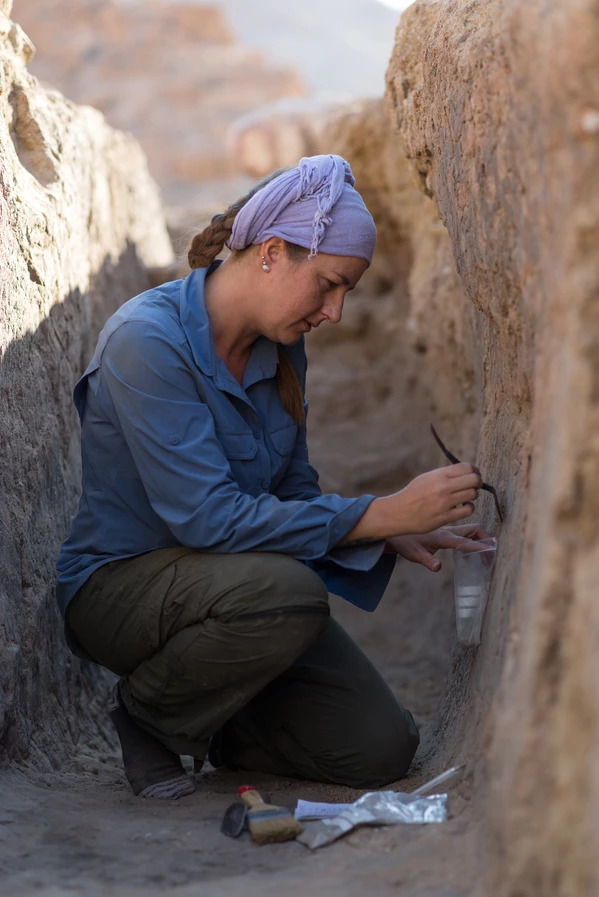
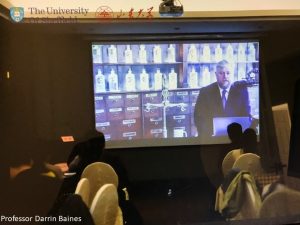 A masterclass was held at Shandong University on 17 and 18 November 2020, overseen by the British Council, with the aim of creating measurable benefits for Chinese patients and the economy by generating new health economics expertise.
A masterclass was held at Shandong University on 17 and 18 November 2020, overseen by the British Council, with the aim of creating measurable benefits for Chinese patients and the economy by generating new health economics expertise.

 Join us to hear the latest updates and guidance on the influencer industry, parental and educators’ engagement, and online safeguarding. Experts in influencer marketing, digital resilience and safeguarding, digital parenting will provide insights into how educators, schools, local authorities, and parents can address social media influencers’ impact on children’s and families’ online activities and developing strategies to ensure the protection of the most vulnerable. Become the master of your digital genie!
Join us to hear the latest updates and guidance on the influencer industry, parental and educators’ engagement, and online safeguarding. Experts in influencer marketing, digital resilience and safeguarding, digital parenting will provide insights into how educators, schools, local authorities, and parents can address social media influencers’ impact on children’s and families’ online activities and developing strategies to ensure the protection of the most vulnerable. Become the master of your digital genie!  Staying Active and Independent for Longer (SAIL) is an EU funded project which began in 2017. The project aimed to use the concept of social innovation to develop 10 pilots across 4 countries (France, Belgium, The Netherlands and the UK) that would enable older people to be more active. The members of the research team from Bournemouth University (Prof. Ann Hemingway Prof. Adele ladkin and Dr. Holly Crossen-White) have just published a paper in Quality in Ageing and Older Adults on how social innovation can be applied to develop services that support the needs of older people. The paper entitled, The application of social innovation as it relates to older people and the implications for future policymaking: a scoping review presents research evidence into the use of soical innovation in relation to services for older people and identifies exisitng knowledge gaps. A key point to emerge from the scoping review was that although social innovation has the potential to act as a policy driver, to be effective, it is necessary to devise robust strategies to ensure full user-engagement and active involvement of communities. Furthermore, any future research into social innovation needs to focus upon the process of delivery as this is an aspect of social innovation that has to date received little attention.
Staying Active and Independent for Longer (SAIL) is an EU funded project which began in 2017. The project aimed to use the concept of social innovation to develop 10 pilots across 4 countries (France, Belgium, The Netherlands and the UK) that would enable older people to be more active. The members of the research team from Bournemouth University (Prof. Ann Hemingway Prof. Adele ladkin and Dr. Holly Crossen-White) have just published a paper in Quality in Ageing and Older Adults on how social innovation can be applied to develop services that support the needs of older people. The paper entitled, The application of social innovation as it relates to older people and the implications for future policymaking: a scoping review presents research evidence into the use of soical innovation in relation to services for older people and identifies exisitng knowledge gaps. A key point to emerge from the scoping review was that although social innovation has the potential to act as a policy driver, to be effective, it is necessary to devise robust strategies to ensure full user-engagement and active involvement of communities. Furthermore, any future research into social innovation needs to focus upon the process of delivery as this is an aspect of social innovation that has to date received little attention.

 , bookstagramming and digital author Michael Joyce’s bedtime reading.
, bookstagramming and digital author Michael Joyce’s bedtime reading.
 Genoveva Esteban and Katie Thompson are excited to announce the launch of a new website,
Genoveva Esteban and Katie Thompson are excited to announce the launch of a new website, 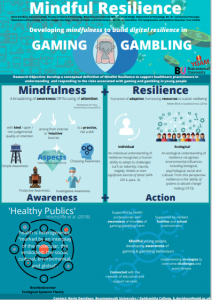
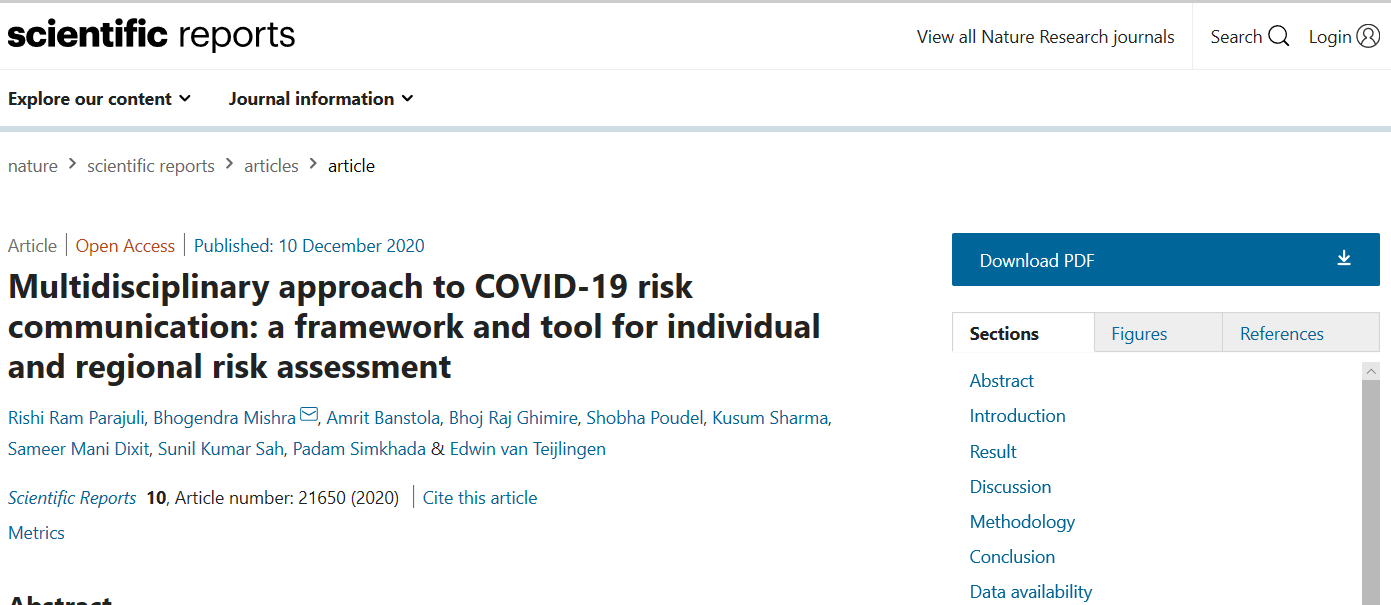
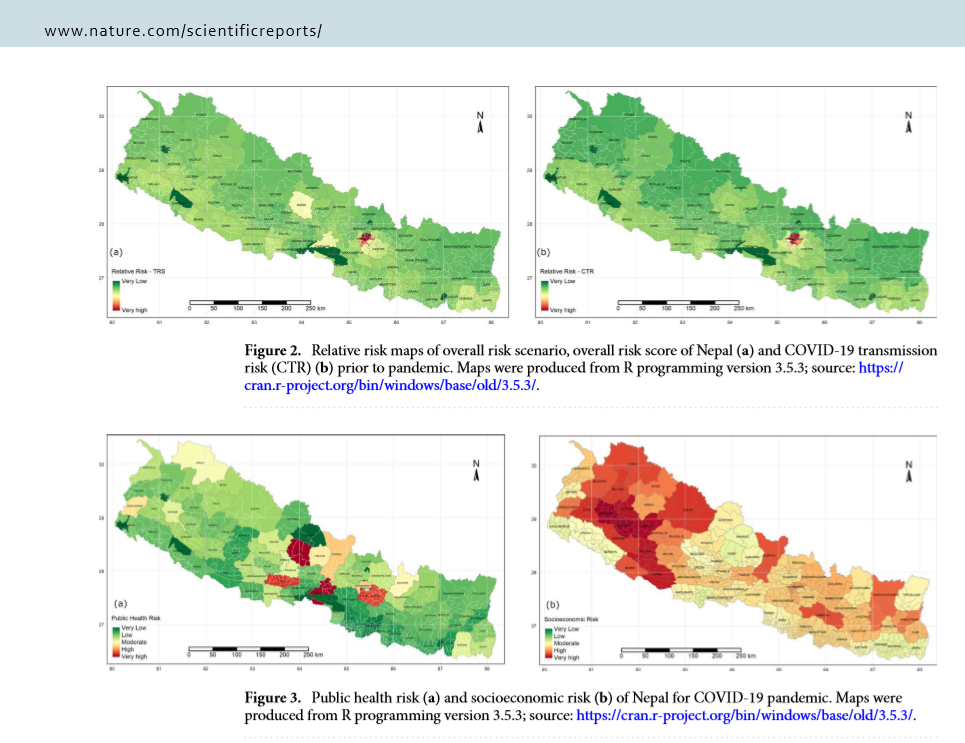











 Trans+ Research Conference on Lansdowne Campus!
Trans+ Research Conference on Lansdowne Campus! Open Access Publication Fund open again to new applications
Open Access Publication Fund open again to new applications Closing tomorrow: please complete the Postgraduate Research Experience Survey 2025
Closing tomorrow: please complete the Postgraduate Research Experience Survey 2025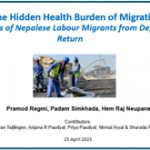 Plenary talk by Dr Regmi on Hidden Health Burden of Nepalese Migrants
Plenary talk by Dr Regmi on Hidden Health Burden of Nepalese Migrants Horizon Europe 2025 Work Programme pre-Published
Horizon Europe 2025 Work Programme pre-Published MSCA Postdoctoral Fellowships 2025
MSCA Postdoctoral Fellowships 2025 Update on UKRO services
Update on UKRO services European research project exploring use of ‘virtual twins’ to better manage metabolic associated fatty liver disease
European research project exploring use of ‘virtual twins’ to better manage metabolic associated fatty liver disease